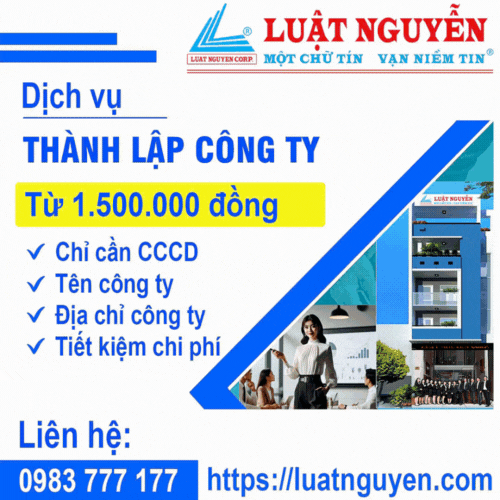Pilot Cryptocurrency Asset Trading: Beyond “Playing Coin”
Phan Duc Trung, Chairman of the Vietnam Blockchain and Digital Asset Association (VBA), emphasized that this is not about speculation:
“Resolution 05 is a landmark step that reflects the government’s intent to establish a transparent, compliant market—one that attracts capital, enhances liquidity, and minimizes fraudulent activities.”
A Clear Legal Framework
The resolution ensures transactions on centralized exchanges are transparent, tax-compliant, and aligned with global standards on identity verification, anti–money laundering (AML), and counter-terrorism financing (CTF). Vietnam recognizes two categories of digital assets: tokenized assets linked to real-world assets and non-asset-backed tokens. The focus is to harness tokenization as a tool to channel investment and boost liquidity across markets.

Analysts project that tokenization could account for 10% of global GDP—around USD 19 trillion—by 2033. Vietnam’s timing is favorable, allowing it to learn from both the missteps and progress of early movers like the U.S. and EU.
Market Concerns and Compliance
Some foreign exchanges and decentralized platforms have restricted Vietnamese IP access due to regulatory uncertainty. Trung viewed this as a positive sign of compliance rather than an exodus. He noted, however, that many foreign firms failed to participate in Vietnam’s two-year consultation process—a missed chance to influence policy.
Not for “Coin Games”
One controversial point is the minimum charter capital requirement of VND 10 trillion (USD ~400 million) for licensed exchanges—by far the highest in the world. While critics argue this bars smaller players, Trung explained the rationale: Vietnam’s financial market remains young, and the government is prioritizing robust safeguards—from cybersecurity (level-4 protection) to insurance, AML/CTF standards, and investor protection.
That said, smaller firms are not excluded; they may participate in secondary markets, startups, or innovation hubs through partnerships with larger institutions.
Restrictions and Strategy
Another debated rule is that tokenized assets may only be offered to foreign investors, aiming to attract external capital while protecting Vietnam’s forex market. While this limits domestic liquidity in the short term, secondary trading could alleviate the constraint. Trung stressed that Vietnamese issuers must compete globally with strong, high-yield, safe, and liquid products.
Human Capital and Execution Challenges
According to Trung, the biggest challenge is not regulation but execution by pioneering exchanges. Fewer than three platforms may have the capacity to meet the standards, and their success will shape the market’s credibility.
Vietnam also faces a shortage of qualified personnel, particularly in AML/CTF compliance. For instance, achieving ACAMS certification—an international AML credential—requires 2–3 years of training and at least USD 18,000, highlighting the gap in expertise.
Taxation and Currency
Resolution 05 mandates transactions in Vietnamese dong, with tax treatment aligned to securities. Trung argued that dong-denominated trading is not a barrier; the true test is whether Vietnam can make its digital asset market attractive enough for investors, despite risks such as exchange rate volatility.
However, he warned that applying the securities transfer tax of 0.1% per transaction could be excessive, given the high-frequency, high-risk nature of digital asset trading compared to traditional securities.
Outlook
Trung believes that within three years, Vietnam can learn from a decade of global digital asset evolution. To succeed, the government must quickly clarify rules on custody, separation of client and proprietary trading, and wallet infrastructure. Ultimately, the market’s health will depend on balancing investor protection, regulatory stability, and capital inflows—not speculation.
Ý kiến bạn đọc
Những tin mới hơn
Những tin cũ hơn
Cindy Lê – Người Đồng Hành Phát triển Chiến lược Quốc tế tại Công ty Luật Nguyễn
Cô Cindy Lê hiện đảm nhiệm vai trò Giám đốc Phát triển Chiến lược Quốc tế tại Công ty Luật Nguyễn, một vị trí mang tính then chốt trong việc dẫn dắt các doanh nghiệp Việt Nam mở rộng quy mô và vị thế trên thị trường toàn cầu. Với tư duy chiến lược sắc sảo, kinh nghiệm thực chiến đa ngành, và khả...
-
 Bí quyết vận hành an toàn: Doanh nghiệp làm gì để tránh rủi ro?
Bí quyết vận hành an toàn: Doanh nghiệp làm gì để tránh rủi ro?
-
 Nhận diện rủi ro và cách phòng ngừa mua nhà hình thành trong tương lai:
Nhận diện rủi ro và cách phòng ngừa mua nhà hình thành trong tương lai:
-
 Buying future housing projects: risks and safeguards
Buying future housing projects: risks and safeguards
-
 Không nộp phạt nguội xe máy sẽ khiến nhiều thủ tục bị đình trệ
Không nộp phạt nguội xe máy sẽ khiến nhiều thủ tục bị đình trệ
-
 Không nộp phạt nguội xe máy sẽ khiến nhiều thủ tục bị đình trệ
Không nộp phạt nguội xe máy sẽ khiến nhiều thủ tục bị đình trệ
- Đang truy cập101
- Hôm nay1,598
- Tháng hiện tại98,077
- Tổng lượt truy cập1,500,866
-
 Cập nhật địa chỉ trụ sở Công an cấp xã tại TPHCM sau sáp nhập
Cập nhật địa chỉ trụ sở Công an cấp xã tại TPHCM sau sáp nhập
-
 Địa chỉ 19 Tòa án nhân dân (TAND) khu vực TP.HCM sau sáp nhập
Địa chỉ 19 Tòa án nhân dân (TAND) khu vực TP.HCM sau sáp nhập
-
 Từ ngày 1.7: Cách ghi địa chỉ trên hóa đơn điện tử thay đổi
Từ ngày 1.7: Cách ghi địa chỉ trên hóa đơn điện tử thay đổi
-
 Thông tư 40/2021 :Quy định về nghĩa vụ thuế đối với hộ kinh doanh
Thông tư 40/2021 :Quy định về nghĩa vụ thuế đối với hộ kinh doanh
-
 Hóa đơn GTGT xuất cho khách cá nhân có bắt buộc ghi CCCD?
Hóa đơn GTGT xuất cho khách cá nhân có bắt buộc ghi CCCD?








